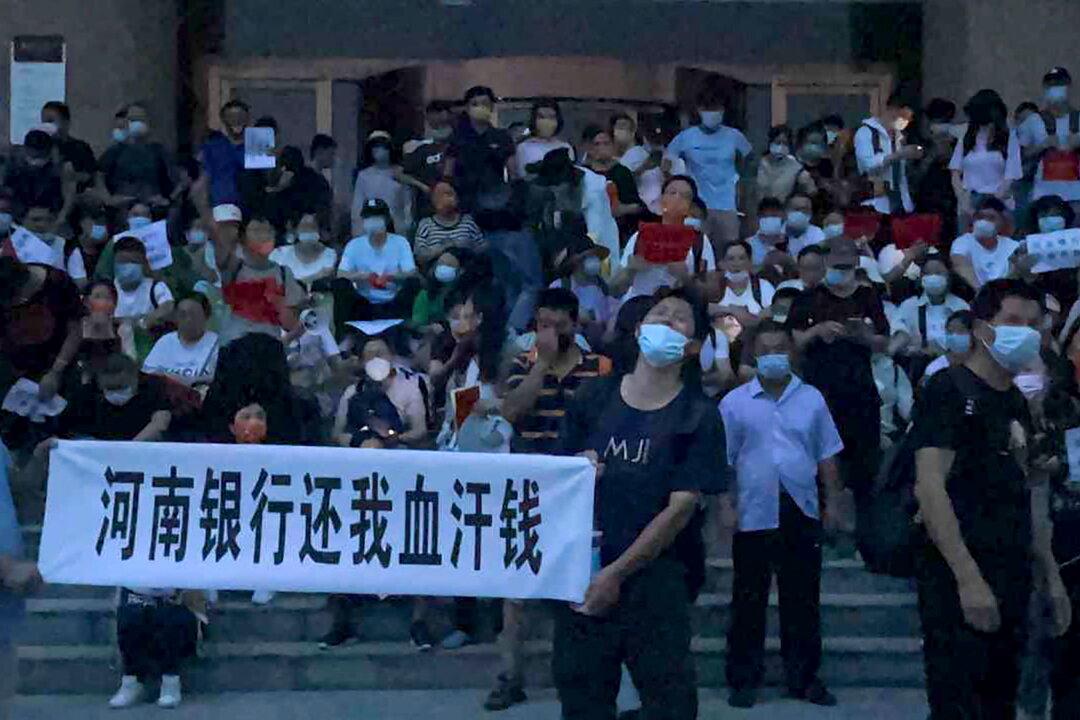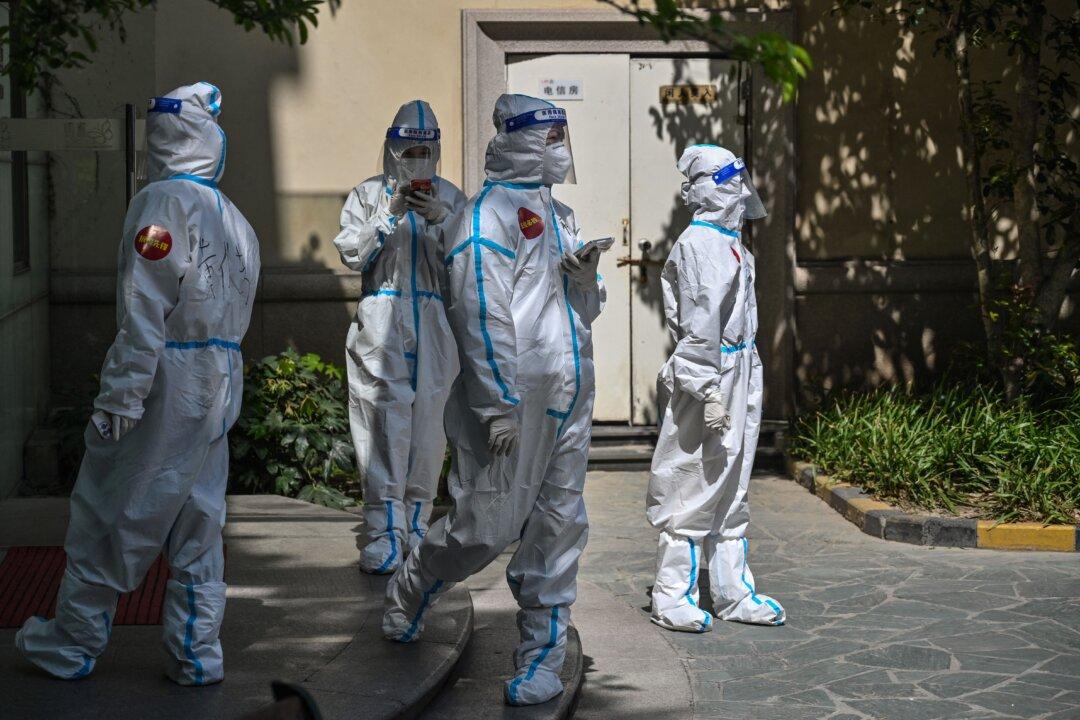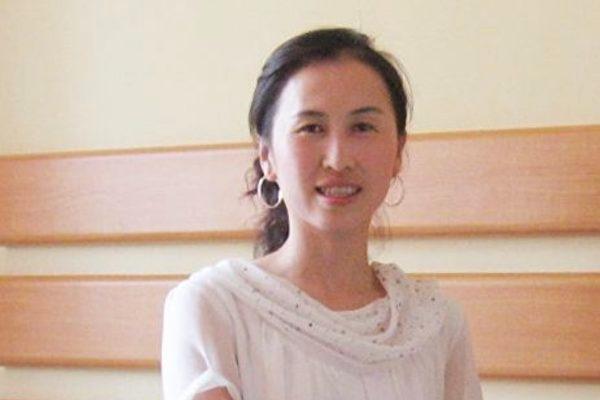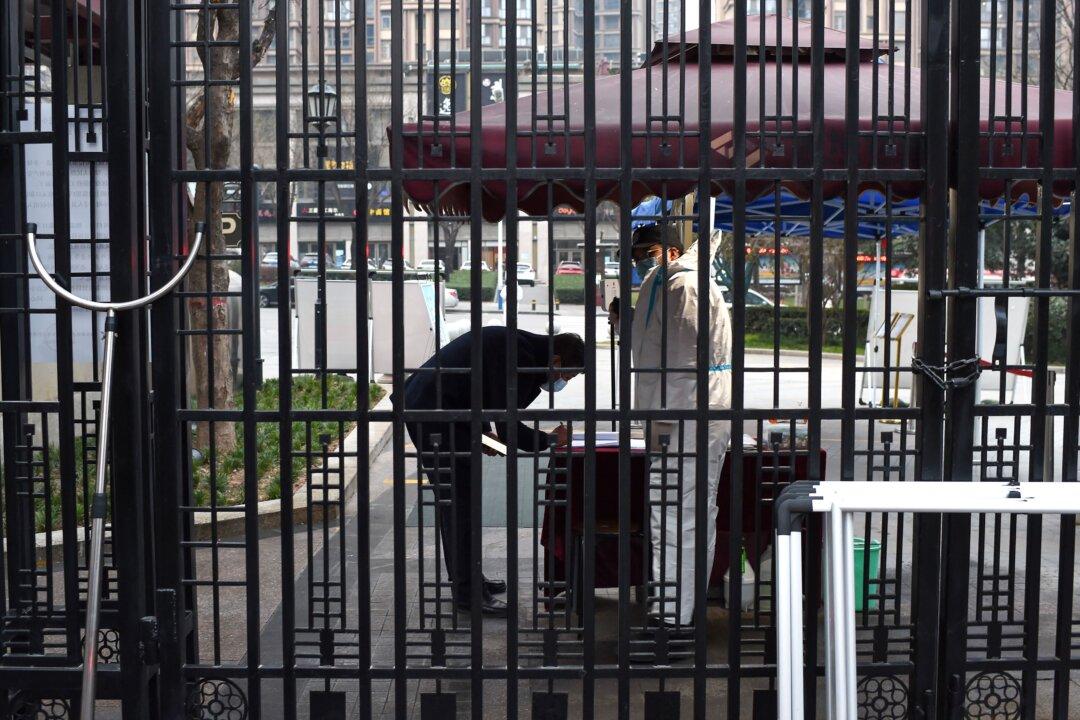

Political parties, human rights organizations, and other groups that are normally suppressed—often violently—in China, will now be allowed to register themselves, under a major rule change.
The Chinese regime’s minister of civil affairs recently said that the ministry is pushing to reform the management of social organizations to allow their direct registration with the Minister of Civil Affairs (MCA). This may be part of measures Premier Wen Jiabao is pushing, to advance political reform in communist China.
In a press conference held by the State Council Information Office on May 7, Civil Affair Minister Li Liguo said a new liberal policy to allow direct registration of social organizations with MCA has been in place since the second half of last year, reports Chinese state newspaper, People’s Daily.
According to another state media, Xinhua, current regulations on social organizations require that a non-governmental organization must find an administrative body to oversee its activities, as a precondition before they can register with the civil affairs authorities. In other words, as things stand, all social organizations need to be monitored by the regime before they can register.
Under the new registering system, social organizations can register directly with MCA.
“Authorities will review such organizations from angles such as their founding conditions, necessity of establishment, activity objective and their roles in social and economic development,” said Li.
In addition, Li made it clear that all social organizations, including those involved with human rights and politics, will have “equal” status for registration and face the “same” supervisory review process.
MCA is a ministry under the State Council, and therefore under the leadership of Premier Wen Jiabao. Thus, opening the door to allow direct registration of “all social organizations including those involved with human rights and politics” must have been approved by Wen. Moreover, top leaders of the Party have a practice of acting collectively when making decisions on important issues, which means Wen is not the only senior Party leader who has approved this reform measure, according to Deutsche Welle.
Just over a year ago, during a meeting of the National People’s Congress on March 10, 2011, Chairman of National People’s Congress Standing Committee, Wu Bangguo, dismissed any notion of reform and proclaimed the Five NOs: “no multi-party election; no diversified guiding principles, no separation of powers, no federal system and no privatization.”
Wu also said that the Five NOs had been examined and approved by the Politburo Standing Committee, the regime’s nine-member ruling organ.
The next day, several Party top leaders said they “fully agreed” with Wu’s position on the Five NOs, reported Hong Kong’s Ming Pao. Among them were Jia Qinglin (Chairman and Party secretary of the National Committee of the People’s Political Consultative Conference), Li Keqiang (vice Premier), and Zhou Yongkang (head of domestic security apparatus, the Political and Legislative Affairs Committee). However, Wen Jiabao did not comment on Wu’s statements.
Continued on next page: China’s political climate has changed dramatically after a series of incidents ...
Recently, China’s political climate has changed dramatically after a series of incidents, including former Chongqing police chief Wang Lijun’s failed attempt to defect at the U.S. Consulate in Chengdu on Feb. 6, the ouster of former Party Secretary of Chongqing Bo Xilai, and blind Chinese human rights lawyer Chen Guangcheng’s daring escape from extralegal house arrest and fleeing to U.S. Embassy in Beijing. These were all heavy blows to Zhou Yongkang, who on Sunday reportedly stepped down as the head of China’s public security apparatus.
Zhou is part of the hardline faction that includes Bo Xilai and former Party leader Jiang Zemin. They all have torture and genocide lawsuits against them for their roles in persecuting Falun Gong in China. To keep from being held legally accountable, these men have been contending for power with Hu Jintao’s faction. Hu is the leader of the Youth League faction.
Zhou’s hardline faction is also the biggest obstacle for Wen Jiabao’s political reform, according to several China experts.
Recent events suggest that faction is in the process of being purged.
Zhang Tianliang, a commentator and professor of George Mason University said in an interview with New Tang Dynasty Television (NTD TV) that the domestic security apparatus headed by Zhou has destroyed public justice in China and has obstructed the transformation of China’s society.
Another commentator, Hong Jiang, told NTD TV that in order to push for political reform, Hu and Wen must take down Zhou Yongkang.
Click www.ept.ms/ccp-crisis to read about the most recent developments in the ongoing power struggle within the Chinese communist regime. In this special topic, we provide readers with the necessary context to understand the situation. Get the RSS feed. Get the new interactive Timeline of Events. Who are the Major Players? ![]()
Wen Jiabao has openly stressed the importance of political reform on many occasions in recent years.
In a press conference of the 5th session of the 11th Nation People Congress on March 14, 2012—the day before Bo Xilai was removed from his post as Party Secretary of Chongqing—Wen said, “Reform has reached a critical stage. Without the success of political reform, economic reforms cannot be carried out.”
He also said, “In my last year of office, I will be as committed as ever like an old skate and make my utmost efforts to serve the people, make up for the shortfall in my work with new achievements and win people’s understanding and forgiveness.”
With Zhou Yongkang reportedly losing power, the alliance of Hu Jintao, Wen Jiabao, and presumptive next Party head Xi Jinping has obviously taken the upper hand.
Chinese state media reported that Guangdong province is the first province to implement direct registration for social organizations. Wang Yang, a key player in Hu’s Youth League Faction, is the Party Secretary of Guangdong Province. The new policy has effectively overridden Wu Bangguo’s Five NO’s. This might be a sign that the Party is open to more possibilities and Wen Jiabao is paving the way for political reform.
Read the original Chinese article.
The Epoch Times publishes in 35 countries and in 19 languages. Subscribe to our e-newsletter.



